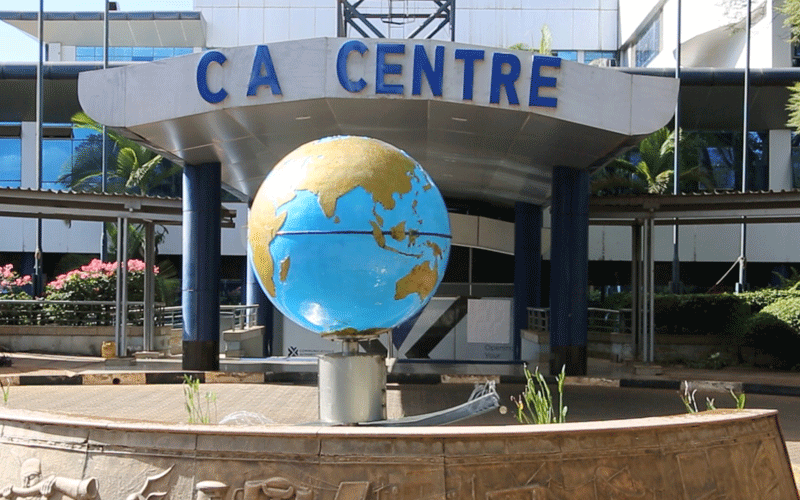Music industry not spared from effects of Covid-19 pandemic

The music industry has not been spared from the devastating effects of Covid-19 pandemic. Music producers in particular are feeling the heat, as Manuel Ntoyai found out
As part of the entertainment sector, the Kenyan music industry was on an upward trajectory, entering into 2020 from a robust 2019, with some institutions such as the Kenya Copyright Board having cracked whip on rogue establishments (read cartels).
For music producers, things were going on well as they had just received Sh33 million in royalties collected between August 2019 and January 2020. But as they say, even the best laid plans often go awry.
“Music-making has changed a lot now because you can’t just trust visitors coming to the studio or on shoot locations.
Also, during shoots, many locals have been giving us very hostile reception as they fear contracting the Covid-19,” says Grip Empire CEO Steve Kipande.
“Choirs are no longer meeting to record and (music video) shoots outside the city cannot happen as many clients fear spending money on production because they don’t know what may happen tomorrow.
So, as a matter of fact, music production business is currently slow,” adds Kipande.
In June, the Kenya Film Classification Board CEO Ezekiel Mutua rescued the music production business of Eldoret-based music producer Kiptoo Rop from collapsing.
Kiptoo had been forced to close his studio due to rent arrears and had to convert his humble bedsitter abode into a makeshift studio.

It was a new dawn for Kiptoo when Mutua cleared the arrears and paid for the full rent, so that the producer could continue eking out a living.
Production in crisis
“As stakeholders in the creative industry, we are in a crisis that has never been experienced before.
Normally, some producers would pay for the production process as investment, but now we are not able to cater for the needs of our sound engineers and the artistes.
As business people, we are also suffering,” says Edward Wiltons, a producer and promoter.
He adds that a lot of contracts between producers, promoters and artistes have been terminated during the pandemic.
“Since we are not able to meet some of the financial obligations, we have been forced to terminate contracts.
That’s why we started Inua Msanii Concert to raise as much help as we could for Machakos-based creatives in need,” says Edward.
The crisis is likely to accelerate underlying trends in the music industry, based on the need to embrace new technology and making money as a business.
“One of the things that has changed is how artistes have accepted online production.
They record vocals on their own and then send over for mixing and mastering.

This works for our clients who are far from the studio, which is a far off move from where they would normally book their sessions and travel to the studio for the whole recording process,” says music producer Motif Di Don.
He adds that while it is still a new concept, it has helped with time management as he can work on more projects, while staying safe from the coronavirus.
Changing business models
With brands having put on hold their advertising endeavours, ad supporting channels and production houses that used to make jingles and other marketing tools have experienced a huge dip in cash flow.
Producers are also experiencing a clog in their work, as some artistes have delayed the release dates of their musical projects.

“Releasing music and getting the right attention requires a lot of behind the scenes work.
There are radio interviews, TV shows and club appearances, and such marketing opportunities are no longer available to artistes.
This has given them something to think about, especially when it comes to pushing their products digitally.
We have also witnessed a surge in studios making inroads into the podcasting world and others offering live steaming services,” says A&R manager Sameer Bry.
He adds that with the entertainment industry being among the most severely impacted, with cancelled concerts and performers struggling to make the ends meet, it makes sense postponing release dates.
“But artistes should keep one thing in mind; if you have a ‘big’ song, you will make quick bucks via platforms such as Skiza.
But if you hold on to a good song planning that you will release it later, we don’t know exactly when this pandemic will end. So, we just need to readjust and adapt,” says Bry.
Music producer Dr Eddie says the current market setup, which is still reliant on traditional media to market music, has been challenged.
“While we are in a digital age, most of our artistes can’t attract the numbers required to commercialise their products.
One requires sponsorship from corporate companies to even hold live virtual shows if at all you are to make money,” he tells Spice.
He states that given that most artistes rely on performance money in order to record and move their brand, the pandemic has seen a reduced traffic of musicians to studios.
“With them not recording as much as they used to, the producers are being rendered jobless and this disruption of revenue streams is felt harder by us the beat makers,” says Eddie in conclusion.













